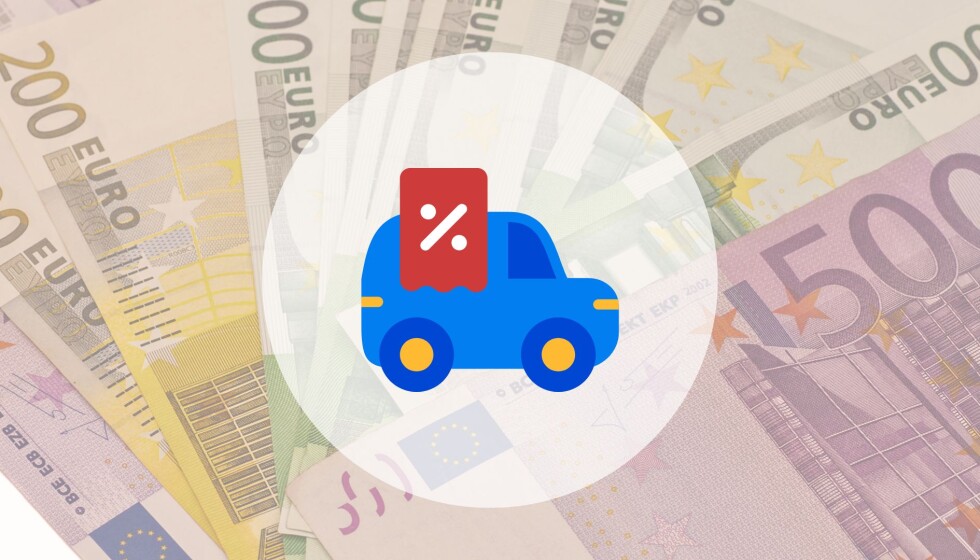The Ukrainian car market is currently going through not the best of times: its development is restrained by the increase in fuel prices, the exchange rate, which is gradually increasing, the ban on crossing the border for men of conscription age, "activist farmers" at border checkpoints, and a general decrease in the purchasing power of citizens. Another factor may soon be added — the military levy for the first registration of passenger cars.
It is proposed to levy a 15% tax on new and used cars that are subject to the first state registration, in draft law No. 11416, which appeared in the list of documents registered with the Verkhovna Rada on the evening of April 18.
In general, the document contains many proposals for the introduction of a military levy with different rates for different situations — the sale of real estate, jewelry, the provision of mobile communication services, etc. Cars are also among them.
Therefore, if this project becomes a law, for which it is necessary to complete all the procedures provided for by the Regulations, and collect at least 226 votes of peopleʼs deputies in each of the two votes, and the text of the document remains unchanged, then the additional military duty will be imposed on all passenger cars that are subject to the first state registration (that is, both new and used "freshly driven"), regardless of whether such a car is purchased by an individual or a legal entity.
The amount of the fee is 15%, literally "from the value of the passenger car, determined in accordance with the sales contract, the contract of sale, the certificate of the customs authorities, the report of the expert assessment of the value of the car, other documents confirming this value, but not lower than the customs value specified in customs declaration". The fee will have to be paid after customs clearance, and the Service Centers of the Ministry of Internal Affairs will control it.
How might this affect the market?
Any increase in price always deters potential buyers from making decisive decisions regarding the purchase of this or that product. That is, with a fairly significant increase of 15% in the price of a car, one should expect a more than proportional decrease in the number of people willing to buy them.
The current taxation system for the import of used passenger cars with internal combustion engines and without additional taxes is quite complex: customs duty, excise, VAT, a collection to the Pension Fund and a number of accompanying payments are paid — delivery, insurance, customs brokerage services, certification, bank commissions. The addition of another fairly significant tax will lead to an even greater slowdown in the segment of passenger car imports with mileage, which now already operates at half the pace (about 20 thousand cars per month) compared to what it was in pre-war times (+50 thousand car per month).
Based on historical data, it is known that the more various barriers the authorities set for the import of cars, the more often there were corruption moments in the relevant authorities interested in receiving private benefit from, for example, underestimating the estimated value of the car in the documents. It is corruption during the determination of the customs value of a car that is one of the main arguments for the adoption of the "Customs Clearance in Action" project.
The majority of new car dealers are also not in the best position right now — not all factories are willing to ship cars to a country where hostilities and missile attacks are taking place, that is, there are high risks. There is a shortage of certain models, or at least their versions or configurations. What restrains the volume of new cars sold. Also wants better credit support. So if you add another 15% to this, you should also expect a significant decrease in sales and, accordingly, tax revenues.
Thus, there is a risk that the additional levy, which would make new and used cars uncompetitive in price with similar or similar cars in the domestic market, would reduce the volume of used car imports by about 50% from the already low current volumes, about the same a decrease in sales should also be expected in the sector of new cars. As a result, it will not lead to an increase in revenues to the budget, but to their decrease.
The segment of electric cars (new and used) runs the risk of completely moving to the domestic secondary market (without replenishment), because now, in connection with the supply of electricity according to schedules, it is very difficult to find a buyer for such a product. If you add another 15% to the current prices, imported electric cars simply will not have a place on the market.
In turn, a decrease in activity in the car import sectors may affect related areas as well — car service, gas stations, and the sale of spare parts, which will also negatively affect tax revenues.
At the same time, understanding the need to find additional sources to fill the budget, it is worth directing efforts to find them first of all to "shadowed" businesses, removing various "schemes" of tax avoidance, and then resort to raising taxes for citizens and "white" businesses. And to do it in less radical steps, applying reasonable tax rates of several percent, which do not pose a risk of completely stopping one or another segment, such as automobile imports, taking it beyond the price framework of competitiveness. Because in this case, both business and the state will lose, experts of the Institute of Car Market Research believe.
Subscribe to the Telegram channel of the Auto Market Research Institute to be the first to receive information without advertising or spam.



